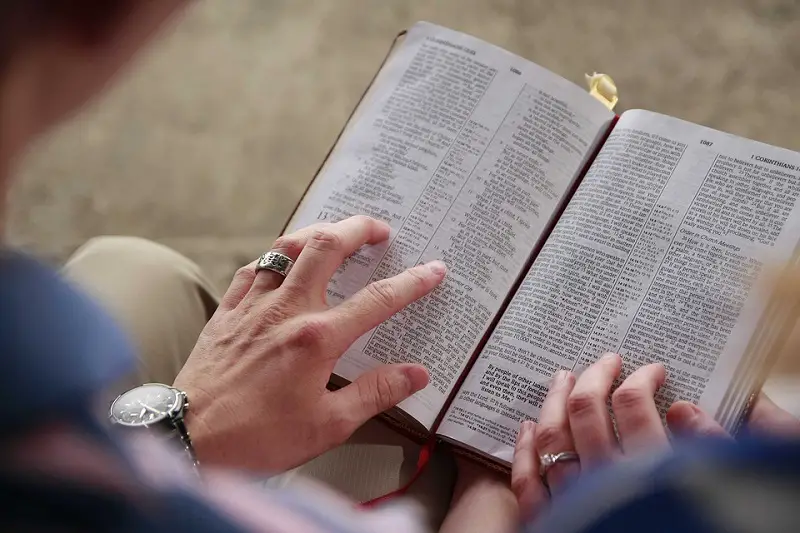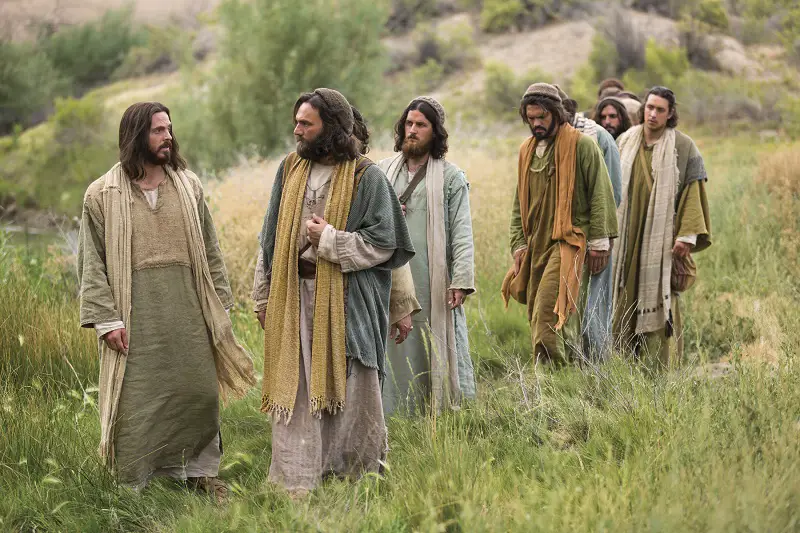In a world increasingly characterized by moral ambiguity and shifting values, the concept of holiness stands as a timeless beacon, inviting reflection and reverence.
What does it truly mean to be holy, and how does this profound idea resonate throughout the pages of the Bible?
From the fiery encounters on Mount Sinai to the gentle whispers in quiet prayer, holiness in the Bible is not merely an abstract theological concept; it’s deeply woven into the very fabric of human experience.
As we journey through sacred texts, we discover that holiness transcends mere rules or rituals.
It embodies a transformative relationship with God that calls us to live differently—set apart for purpose and love.
This exploration will delve into various biblical narratives, shedding light on how holiness informs our understanding of God’s character and His expectations for humanity.
Whether you are a seasoned believer or someone seeking clarity amidst life’s chaos, join us as we unpack this essential aspect of faith that continues to challenge and inspire countless lives across generations.
Before we start, let’s take a quick look at the …
The Meaning of Holiness in the Bible

Holiness in the Bible transcends mere moral perfection; it encompasses a profound depth of relationship and purpose.
Rooted in the very nature of God, holiness is often illustrated through instances where the divine intersects with humanity.
Take, for instance, Isaiah’s vision in chapter 6, where he encounters seraphim proclaiming God’s glory: Holy, holy, holy is the Lord Almighty.
This repetition signifies completeness and invites us to reflect on how holiness acts as a catalyst for transformation—calling us not just to observe but to engage actively with our Creator.
Moreover, holiness serves as an invitation to community and stewardship rather than isolation.
Leviticus famously mandates Israel to be holy because I am holy, highlighting that ethical living extends beyond personal piety to encompass social responsibility.
In this light, holiness becomes a communal pursuit—where believers are called not only to embody purity individually but also to uplift those around them through acts of justice and mercy.
This perspective challenges contemporary interpretations that confine holiness within ritualistic boundaries or exclusive experiences; instead, it portrays it as an active force driving believers towards love and service in an interconnected world.
5 Examples of Holiness in the Bible

The Bible is filled with stories of holy people who have had a profound impact on history.
These examples of holiness can be found in many characters throughout the Bible, and they demonstrate what it looks like to live a holy life.
Below are some examples.
I. Moses
Moses stands as a compelling figure who exemplifies holiness in the Bible, not just through his interaction with God but also through his transformation as a leader.
Encountering the divine presence at the burning bush, Moses is instructed to take off his sandals because he is standing on holy ground (Exodus 3:5).
This moment marks a pivotal shift; it’s not merely about geography but signifies an awakening to God’s holiness and an invitation to a new way of being.
It showcases how true holiness necessitates acknowledgment and respect, encouraging believers to recognize sacred moments in their own lives.
Moreover, Moses’ role extends beyond personal encounters; he becomes a vessel for conveying God’s laws to the Israelites.
His ascent up Mount Sinai to receive the Ten Commandments symbolizes more than just spiritual leadership; it represents the call for moral integrity among God’s people (Exodus 19-20).
Yet, even in this elevated state of holiness, Moses’ humility shines through when he intercedes for Israel after their sin with the golden calf.
This juxtaposition of authority and compassion highlights that holiness isn’t exclusively power or perfection but is profoundly linked to love and accountability towards others.
Through Moses’ journey, we see that genuine holiness fuels both personal transformation and communal responsibility.
II. Isaiah
In the book of Isaiah, one can witness the profound nature of holiness as it intertwines with the divine calling and human response.
For instance, in Isaiah 6:1-5, the prophet experiences a vision of God seated on a lofty throne, surrounded by seraphim proclaiming, Holy, holy, holy is the Lord Almighty.
This passage not only highlights God’s otherness and absolute purity but also serves as a stark reminder of humanity’s frailty in light of divine holiness.
When Isaiah realizes his sinfulness amidst this awe-inspiring vision—“Woe to me! I am ruined!—it reflects the transformative power that holiness invokes in those who encounter it.
Additionally, holiness in Isaiah isn’t limited to transitory visions or proclamations; it manifests through prophetic declarations that demand societal change.
In chapters 1 and 58, God calls out Israel not just for personal sin but also for systemic injustices.
This connection underscores our need to pursue holistic righteousness—personal purity intertwined with social integrity.
The emphasis on justice as a key aspect of God’s character invites readers to reconsider what it means to be holy: it’s not merely about individual behavior but collective action toward equity and compassion.
Thus, Isaiah’s vision compels us to embody holiness through engagement with both heavenly reverence and earthly responsibilities.
III. Mary, the Mother of Jesus
Mary, the Mother of Jesus, stands as a profound example of holiness in the Bible, embodying an unwavering faith and humility that resonates through generations.
Her response to the angel Gabriel during the Annunciation—Behold, I am the handmaid of the Lord; let it be to me according to your word (Luke 1:38)—reveals a deep surrender to the divine will.
This moment exemplifies her radical openness to God’s plan, highlighting how holiness often requires relinquishing control and embracing vulnerability.
Moreover, Mary’s journey is punctuated by moments that redefine strength within vulnerability.
When she visits her cousin Elizabeth after receiving news of her miraculous pregnancy, she utters the Magnificat—a song of praise where she rejoices not only in her own blessing but also in God’s promise to uplift the lowly (Luke 1:46-55).
This illustrates a key aspect of holiness: recognizing one’s role within a larger narrative and celebrating collective grace rather than individual glory.
In these profound expressions of faith and selflessness, Mary exemplifies how holiness transcends mere piety; it’s about embodying love and compassion in response to God’s call.
IV. Peter
Peter’s journey exemplifies the transformative power of holiness in the Bible, illustrating how an imperfect human can be called to divine purposes.
Initially known as Simon, Peter embodies a complex tapestry of flaws and fervor, making his eventual embrace of holiness all the more striking.
After his denials during Jesus’ trial, Peter’s restoration on the shores of the Sea of Galilee becomes a pivotal moment not just for him but for all believers.
Jesus asks him three times, “Do you love me?”—a profound invitation that compels us to consider our own commitment to holiness amid failures.
What stands out is how Peter’s encounters with Christ refine his character and amplify his vulnerabilities into strengths.
In Acts 2, after Pentecost, he boldly proclaims the Gospel, transforming from a fearful follower into a fearless leader. This metamorphosis challenges us to reflect on our spiritual journey: Can we allow God’s grace to reshape our weaknesses into testimonies?
Furthermore, Peter’s letters urge Christians toward active engagement in holy living—calling them “a chosen people,” inviting us all to step into our identity as reflections of God’s glory in a fractured world.
His life reminds us that holiness isn’t about perfection; it’s about aligning ourselves with divine purpose and embodying love through action.
V. Paul
One of the most striking examples of holiness in the Bible can be seen through the life and writings of the Apostle Paul.
After his dramatic conversion on the road to Damascus, Paul became a profound embodiment of holiness, not just in personal conduct but also in purpose and mission.
His letters emphasize that holiness is more than mere moral perfection; it’s an intentional alignment with God’s will.
For Paul, this meant fully embracing grace as both a gift and a responsibility—an understanding that we are called to live out our faith actively in the community.
In his epistles, particularly to the Romans and Corinthians, Paul articulates how true holiness manifests through love and service to others.
He challenges believers to view their lives as living sacrifices, emphasizing that every action becomes holy when infused with divine love.
This fresh perspective shifts the focus from individual piety to communal integrity—reminding us that our journey towards holiness is interconnected with those around us.
Through Paul’s teachings, we learn that honoring God involves relentless pursuit of justice, humility in service, and unwavering commitment to spreading hope amidst adversity—a multi-faceted approach to sanctification that is as relevant today as it was two millennia ago.
The Consequences of Lacking Holiness

The consequences of lacking holiness extend far beyond personal spirituality; they ripple through our relationships, communities, and even the fabric of society.
When individuals ignore the call to live with integrity and purpose, they often find themselves entangled in conflict and moral ambiguity.
This absence of holiness can foster an environment ripe for selfishness and division, where empathy is replaced by indifference.
In such a landscape, trust erodes, making it difficult to build strong connections and cohesive communities.
Moreover, the repercussions manifest on a collective level as well. A society that strays from principles of holiness may normalize behaviors that prioritize gratification over responsibility.
The glorification of superficial values leads to a culture devoid of accountability or genuine compassion; people become mere players in a transactional existence rather than engaged contributors to their shared human experience.
Ultimately, this lack cultivates despair instead of hope—a reality we must confront if we’re to rekindle a sense of meaning amidst chaos.
Embracing holiness not only uplifts our souls but also strengthens the bonds that weave together the intricate tapestry of humanity itself.
Bible Characters Who Lacked Holiness

Throughout the Bible, there are numerous examples of characters who lacked holiness.
While most of these examples are negative, they serve as valuable lessons and warnings to readers.
These characters can provide insight into how people should not live their lives.
As such, it’s important to understand the stories of these characters and the consequences that resulted from their lack of holiness.
1. Demas
Demas, a figure mentioned in the New Testament, exemplifies the struggle between faith and worldly allure.
Initially portrayed as a companion of the Apostle Paul, he appears to embrace the mission of spreading the Gospel.
However, in 2 Timothy 4:10, we find a poignant turn: For Demas, having loved this present world, has deserted me and gone to Thessalonica.
This poignant betrayal reflects how even those closest to spiritual leaders can falter when faced with temptation.
What makes Demas particularly intriguing is not just his departure but what it reveals about human nature—a tension between our spiritual aspirations and earthly desires.
His downfall serves as a compelling reminder that holiness is not merely an inherited status but a conscious choice cultivated through daily discipline and accountability.
Many believers may see themselves in Demas; life’s distractions can easily overshadow faith commitments if one isn’t vigilant.
In portraying his journey from fellowship to forsaking ministry, we are urged to examine our priorities—how often do we prioritize transient pleasures over eternal purpose?
2. Solomon
Among the Bible characters who lacked holiness, Solomon stands out as a multifaceted figure whose wisdom was often overshadowed by his moral failings.
Despite being revered for his intellect and granted unparalleled riches, Solomon’s heart strayed from God due to his relationships with foreign wives.
This pursuit of love and alliances led him to embrace idolatry, constructing high places for worshipping pagan deities like Molech and Ashtoreth—actions that directly contradicted the covenant he had with Yahweh.
What makes Solomon’s story particularly poignant is not just the stark contrast between his initial devotion and later transgressions but also how easily he succumbed to the seductions of power and pleasure.
His expansive wealth offered him every earthly delight imaginable, yet this abundance became a snare that dulled his spiritual discernment.
The tragic irony lies in the fact that, while possessing unparalleled wisdom, he failed to apply it in matters of faithfulness to God.
Ultimately, Solomon serves as a cautionary tale about how even those endowed with divine gifts can falter when they allow distractions—and unholy influences—to dictate their choices.
3. Cain
Cain stands as a striking example among Bible characters who lacked holiness, embodying the profound struggle between jealousy and acceptance.
His tale begins with an act of worship that spirals into tragedy; Cain’s failure to offer a pleasing sacrifice, juxtaposed with Abel’s heartfelt gift, ignites fierce envy within him.
This emotional turmoil ultimately drives Cain to commit one of the first murders recorded in Scripture—not merely the act of killing his brother but also symbolizing a deeper betrayal of divine principles.
What makes Cain’s story particularly compelling is not just his descent into violence but also God’s response to him afterward.
Instead of immediate condemnation, God offers guidance and a chance for redemption, suggesting that holiness isn’t solely about perfection but about grappling with our flaws and failures.
In light of this relationship, we see Cain as more than just the villain; he represents humanity’s potential for darkness while underscoring the divine call toward reconciliation and moral responsibility.
His narrative serves as a cautionary reminder that even amid our shortcomings, we are invited to seek restoration rather than succumb to bitterness—an essential lesson in today’s world still marred by conflict and rivalry.
4. Adam and Eve
Adam and Eve, the original inhabitants of Eden, showcase a profound narrative about the struggle between innocence and moral failure.
Their choice to disobey God by eating from the Tree of Knowledge reveals not only their vulnerability but also highlights how even beings created in divine image could lack holiness.
This pivotal moment reflects a universal truth: temptation can lead even the purest souls astray.
The allure of knowledge came at a grave cost, stripping away their innocence and plunging humanity into an age-old conflict filled with doubt and fear.
Moreover, Adam and Eve’s story invites readers to reflect on the nature of responsibility in relationships.
As they each grappled with their consequences—blame shifting between them—it paints a picture of human nature that often falters in accountability.
Their narrative serves as a reminder that holiness is not simply inherent but requires conscious choices amidst everyday temptations.
This fundamental weakness resonates today; it suggests that perfection is not the hallmark of faithfulness but rather the willingness to recognize our flaws and strive for redemption despite them.
5. King David
King David, a figure revered for his heart after God, also exemplifies the complexities of human nature when he faltered in holiness.
His life is not a mere tale of triumph; it’s a vivid narrative showcasing deep flaws and failures.
One pivotal moment is his affair with Bathsheba, which illuminates how even the most celebrated leaders can succumb to temptation and moral compromise.
This stark contrast prompts us to reflect on the multifaceted nature of holiness—it’s not solely about pious actions but also about grappling with personal weaknesses.
Additionally, David’s later life reveals further shortcomings, including moments of pride that led him to conduct a census against God’s command.
Such decisions serve as reminders that even those anointed by God are susceptible to lapses in judgment.
These stories challenge us today; they invite reflection on our vulnerabilities and the grace required to navigate our imperfections.
By embracing David’s journey—marked both by extraordinary faithfulness and significant failings—we find reassurance in knowing that holiness is a journey rather than an unattainable perfection.
How to Cultivate and Practice Holiness

Living an honorable and holy life can be quite challenging in our current society.
However, it is possible to cultivate and practice holiness with the right guidance and knowledge.
Here, we will cover how to cultivate holiness through understanding scriptures, prayer, and meditation as well as exploring ways to practice holiness on a daily basis.
We will examine the power of living authentically and being present at the moment.
1. Pursue a Relationship with God
In today’s fast-paced world, it can be easy to lose sight of our spiritual selves. We become so caught up in the day-to-day hustle and bustle that we forget to take the time to nurture our relationship with God.
However, pursuing a relationship with God through prayer and Bible study can help us cultivate and practice holiness.
Through prayer, we have a direct line of communication with God. It allows us to express gratitude for blessings and seek guidance during difficult times.
Prayer also helps keep us grounded in our faith, reminding us of the importance of living a holy life.
Similarly, studying the Bible provides insight into how we should live our lives as Christians. The teachings within its pages provide guidance on how to treat others, overcome temptation, and pursue righteousness.
2. Practice Spiritual Disciplines
Spiritual disciplines such as fasting and confession are not new concepts, but they may be unfamiliar to some.
The practice of these disciplines can help individuals cultivate and practice holiness in their daily lives.
Fasting is a spiritual discipline that involves abstaining from food or other pleasures for a set period.
It helps individuals become more aware of their physical needs and reminds them that they rely on God for sustenance.
Confession, on the other hand, involves admitting one’s sins to God and seeking forgiveness.
This discipline helps individuals acknowledge their wrongdoing and strive towards living a more righteous life.
By confessing regularly, individuals can cultivate humility and deepen their relationship with God.
Both fasting and confession require discipline, commitment, and intentionality.
While they may seem difficult at first, practicing these spiritual disciplines can ultimately lead to greater holiness in one’s life.
3. Engaging in Acts of Service and Obedience to God
As believers in Christ, our ultimate goal is to become holy like God Himself. However, this is not possible without actively cultivating and practicing holiness.
One of the ways we can do this is by engaging in acts of service towards others. The Bible teaches us that when we serve others, we are serving God (Matthew 25:40).
When we put our faith into action through acts of kindness toward those around us, it helps us to become more like Christ who came to serve rather than to be served (Mark 10:45).
Another way to cultivate and practice holiness is by obeying God’s commands. In John 14:15, Jesus says “If you love me, keep my commands.”
Obeying God’s commandments helps us stay on the path of righteousness and draws us closer to Him.
Holiness in The Bible (Summary)
The concept of holiness in the Bible serves as a fundamental principle that shapes the relationship between humanity and the divine.
It’s a call to live following God’s character, emphasizing purity, righteousness, and separation from sin.
Throughout both the Old and New Testaments, we see how holiness not only defines God but also invites believers to pursue a life that reflects His nature.
As we strive for holiness, we are reminded of our responsibility to embody love, justice, and mercy in our interactions with others.
Let us take this call seriously and seek to cultivate holiness in our lives as a testament to our faith and devotion.
Other Blog Posts

Grounded in faith and driven by purpose, I’m a Christian blogger and online research specialist with a passion for God’s Word, lifelong learning, and healthy living.